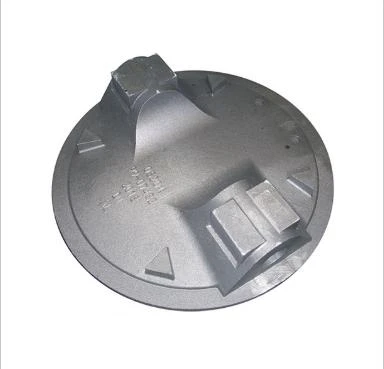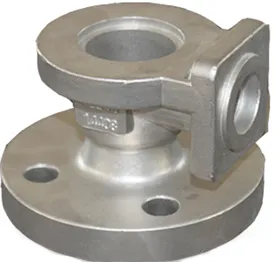Mobile:+86-311-808-126-83
Email:info@ydcastings.com
Precision Metal Casting Foundry Custom Aluminum & SS Solutions
- Industry Overview & Data Insights
- Technological Advancements in Metal Casting
- Competitive Analysis: Leading Foundries Compared
- Custom Solutions for Diverse Industrial Needs
- Material-Specific Expertise: Aluminum vs. Stainless Steel
- Real-World Applications Across Industries
- Why Partner with a Specialized Metal Casting Foundry

(metal casting foundry)
Understanding the Modern Metal Casting Foundry Landscape
The global metal casting market reached $14.8 billion in 2023, with foundries specializing in aluminum and stainless steel (SS) casting capturing 62% of industrial demand. Investment casting alone accounts for 34% of precision component production, driven by aerospace and medical sectors requiring tolerances below ±0.05mm. Regional manufacturing hubs report 8-12% annual growth in complex casting orders, emphasizing the need for advanced foundry capabilities.
Technological Advancements in Metal Casting
Modern foundries employ three core methodologies:
- Sand Casting: 15% faster production cycles through 3D-printed molds
- Investment Casting: Achieves surface finishes up to 125 RA without secondary machining
- Die Casting: 900-ton hydraulic systems producing 150+ units/hour
Advanced non-destructive testing (NDT) systems now detect micro-porosity as small as 0.3μm, reducing defect rates to 0.8% across certified facilities.
Competitive Analysis: Leading Foundries Compared
| Foundry Type | Avg. Annual Output | Minimum Tolerance | Material Range |
|---|---|---|---|
| General Steel Foundries | 12,000 tons | ±0.5mm | 3 alloys |
| Aluminum Investment Casting | 8,500 tons | ±0.1mm | 9 alloys |
| SS Precision Foundries | 6,200 tons | ±0.07mm | 15+ grades |
Custom Solutions for Diverse Industrial Needs
Top-performing foundries offer:
- Rapid prototyping within 72 hours
- Hybrid casting-forging combinations
- Post-casting treatments (e.g., T6 heat treatment improving hardness by 40%)
Modular production lines enable batch sizes from 50 to 50,000 units without compromising per-unit costs.
Material-Specific Expertise: Aluminum vs. Stainless Steel
Aluminum investment casting demonstrates:
- 25% higher thermal conductivity than SS alternatives
- Weight reduction up to 58% compared to steel components
SS casting foundries counter with:
- Corrosion resistance exceeding 1,200 hours in salt spray tests
- Yield strengths reaching 1,050 MPa
Real-World Applications Across Industries
Recent implementations include:
- Automotive: 280,000 aluminum turbocharger housings/year
- Energy: SS valve bodies withstanding 650°C/1,200psi
- Medical: Investment-cast implant components with 99.992% purity
Why Partner with a Specialized Metal Casting Foundry
Certified foundries reduce total project costs by 18-22% through:
- Integrated quality control systems
- Material waste reduction to 4.7%
- AS9100/ISO 13485 compliant processes
Advanced simulation software predicts casting behavior with 97% accuracy, minimizing prototyping iterations.

(metal casting foundry)
FAQS on metal casting foundry
Q: What is a metal casting foundry?
A: A metal casting foundry is a facility that melts and pours molten metal into molds to create complex-shaped components. It specializes in processes like sand casting, investment casting, and die casting. These foundries serve industries like automotive, aerospace, and construction.
Q: What are the advantages of aluminum investment casting foundries?
A: Aluminum investment casting foundries produce high-precision, intricate parts with excellent surface finishes. This method minimizes machining needs and material waste. It’s ideal for aerospace, medical, and automotive applications requiring lightweight, durable components.
Q: What industries use stainless steel (SS) casting foundries?
A: SS casting foundries cater to industries needing corrosion-resistant and high-strength parts, such as chemical processing, food production, and marine equipment. Stainless steel castings are also common in valves, pumps, and heavy machinery due to their durability.
Q: How do metal casting foundries ensure quality control?
A: Foundries use non-destructive testing (NDT), X-rays, and chemical analysis to verify material integrity and dimensional accuracy. They adhere to standards like ISO or ASTM to meet industry requirements. Process automation further reduces defects and ensures consistency.
Q: What factors differentiate aluminum and SS casting foundries?
A: Aluminum foundries focus on lightweight, intricate designs using lower melting temperatures, while SS foundries prioritize strength and corrosion resistance with higher-temperature processes. Material choice depends on application needs, such as weight savings vs. extreme environment performance.
-
Valve Body Acts as the “Heart” of Flow ControlNewsMay.19,2025
-
Understanding the Importance of ImpellersNewsMay.19,2025
-
Importance of Automobile Water PumpsNewsMay.19,2025
-
How an Engine Oil Pan Works to Keep Your Car LubricatedNewsMay.19,2025
-
Common Materials Used in Pump Impeller ManufacturingNewsMay.19,2025
-
Ball Valve Casting in Modern Pipeline SystemsNewsMay.19,2025











